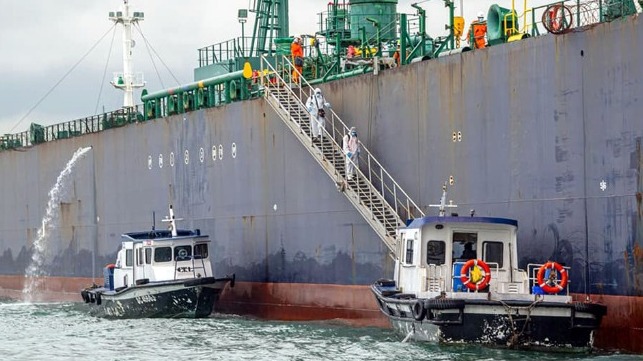Cost of Crew Change Skyrockets Due to Pandemic

With airfare costs on the rise and quarantine restrictions in place, the COVID-19 pandemic is driving up the costs for crew change, according to a leading maritime manning company.
Henrik Jensen, the managing director of Danica Crewing Specialists, says that each seafarer's crew change is now in the range of $2,000 – twice the price seen last year. This means that moving one person to the vessel and sending one person home now costs (on average) about $4,000. He is advising vessel operators to set aside extra funds in their budgets to cover this expense for the coming year.
The new costs include multi-day hotel stays for the oncoming and offsigning crewmembers (about $900 for both), PCR testing (about $325), extra agents' expenses (about $200) and extra airfare costs (about $350).
"Airfares have risen significantly compared to 12 months ago and flights are still difficult to book in many parts of the world due to reduced timetables and last-minute changes or cancellations," says Jensen. "Our analysis does not include vessel deviation and delay costs for redirecting vessels to ports where crew changes are allowed and lost charter revenue. However, vessel deviations caused only for the purpose of crew changes are rare today as more ports are open for crew changes."
According to a tracker maintained by Inchcape Shipping Services, roughly two dozen countries around the world currently support crew change on permissive terms. About 80 more allow changes subject to screening and locally-determined conditions.
Jensen says that the higher costs per change were offset in the first half of the year because of the global lockdown and the ensuing crew change crisis. Not many changes were occurring due to national-level restrictions, so charges for airfare and lodging were less frequent than usual. As the lockdown has eased, crew changes have increased in number - but it will be a long time before the system returns to normal, he cautions. The amount of staff effort required to carry out each crew change is high, and the backlog is long.

that matters most
Get the latest maritime news delivered to your inbox daily.
“Due to Covid-19 and delays in repatriating seafarers, the entire crew planning system is destroyed and crew rotation patterns are all over the place. It will take a lot of time and effort by crew managers and ship owners, and need the assistance of the international community and governments, for the regular crew change system to be re-established," Jensen said.
According to bulker shipowners' association INTERCARGO, crew changes have an additional challenge in the dry bulk sector. Some bulker charterers are prohibiting crew change from occurring during the charter period, even when the shipowner agrees to bear the costs.
